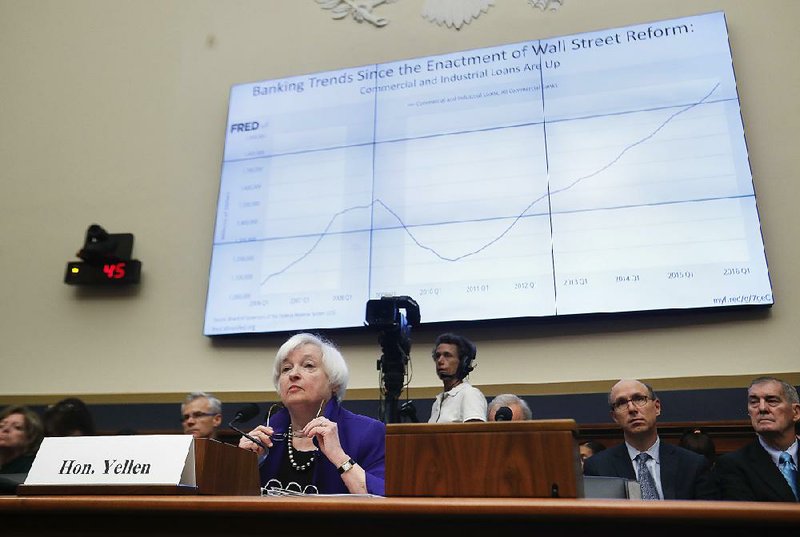Federal Reserve Chairman Janet Yellen's defense of the central bank as nonpartisan was questioned Wednesday by a Republican congressman who cornered her on whether a key policymaker would have a conflict of interest in discussing a potential post in the next U.S. president's administration.
Fed Gov. Lael Brainard has donated to Hillary Clinton's campaign and is widely viewed as a potential Clinton pick for Treasury secretary. Yellen hesitated and then demurred when Rep. Scott Garrett of New Jersey asked whether Brainard would have a conflict of interest if she were indeed in talks with the Democratic nominee's campaign about a position.
"I would have to consult my counsel; I'm not aware that that's a conflict," Yellen said in testimony to the House Financial Services Committee in Washington, while rejecting Garrett's suggestion that the U.S. central bank has a political bias.
"What's important to me is whether or not, in our decision-making, our collective decision-making, I see politics being brought to bear in reasoning about our decisions, and I have never seen that with any of my colleagues," she said after she was questioned about Brainard's possible political conflicts.
The exchange came during a week when the Fed has been under fire for its politics: Republican presidential nominee Donald Trump said during a widely viewed televised debate on Monday that the Fed is keeping rates low to make President Barack Obama look good.
Merited or not, the persistent questioning of the Fed's objectivity -- and Yellen's inability to deflect that skepticism -- could become a headache for the officially nonpartisan and independent central bank, an economist said.
"Yellen completely froze, giving the casual viewer the impression that there is a big conflict of interest and that the Fed is political in its deliberative process," Neil Dutta, head of U.S. economics at Renaissance Macro Research LLC in New York, wrote in a note after the exchange.
Yellen told Garrett during their discussion that the Hatch Act, which limits the political activities of some government employees, doesn't prohibit Fed officials from donating to political campaigns. Brainard, a former Treasury undersecretary for international affairs under Obama, has given $2,700 to Clinton's campaign, according to Federal Election Commission records.
The back-and-forth over Brainard's possible contact with the campaign was a flash point at a hearing where the Fed's relationship to politics was a frequent topic. Democrats Carolyn Maloney and Gregory Meeks both emphasized that the Fed is nonpartisan, while Garrett said that there's an unacceptable "cozy relationship" between the Fed and the administration.
Yellen was chairman of President Bill Clinton's Council of Economic Advisers from 1997 to 1999.
Business on 09/29/2016
